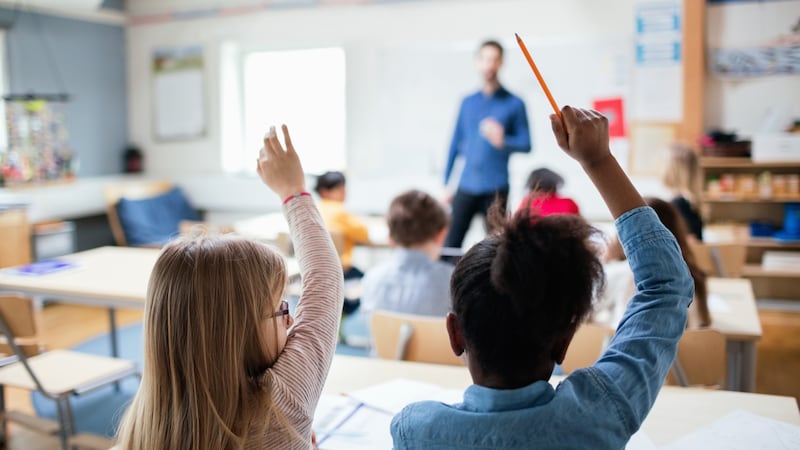Introduction
In the realm of education, the importance of inclusive and special education cannot be overstated. Within this framework, students with developmental challenges are provided with tailored learning experiences that address their unique needs. This article aims to shed light on the significance of special education for developmentally exceptional students, exploring the approaches, benefits, and the transformative impact it can have on their lives.

Understanding Developmental Challenges
1. Diverse Spectrum of Developmental Disabilities:
Developmental challenges encompass a wide spectrum, ranging from intellectual disabilities and autism to speech and language impairments. Each student possesses unique strengths and areas that require targeted support.
2. Individualized Education Plans (IEPs):
Central to special education for developmentally exceptional students is the creation of Individualized Education Plans (IEPs). These personalized plans outline specific learning goals, accommodations, and support services tailored to meet the individual needs of each student.
The Foundations of Special Education for Developmental Students
1. Inclusive Learning Environments:
Special education aims to create inclusive learning environments where students feel accepted, valued, and part of a community. This inclusive approach fosters a sense of belonging and promotes positive social interactions.
2. Differentiated Instruction:
Recognizing the diversity within developmental challenges, special education employs differentiated instruction techniques. Teachers adapt their methods to accommodate various learning styles, ensuring that each student can access and engage with the curriculum.
3. Assistive Technologies:
Leveraging technology, including assistive devices and software, plays a pivotal role in special education. These tools bridge the gap for students with developmental challenges, providing them with alternative means of communication, expression, and information processing.
Approaches to Special Education for Developmental Students
1. Applied Behavior Analysis (ABA):
ABA is a widely used approach that focuses on understanding and modifying behavior. It breaks down complex skills into smaller, manageable tasks, reinforcing positive behaviors through a system of rewards.
2. Speech and Language Therapy:
For students facing challenges in communication, speech and language therapy is a cornerstone of special education. Therapists work on improving articulation, language comprehension, and social communication skills.
3. Structured Teaching Methods:
Implementing structured teaching methods, such as the TEACCH (Treatment and Education of Autistic and Communication related handicapped Children) approach, provides students with clear routines, visual supports, and organizational strategies to enhance their learning experience.
Benefits of Special Education for Developmental Students
1. Academic Progress:
Tailored interventions and individualized support contribute to academic progress for developmentally exceptional students. With targeted strategies, students can grasp and apply concepts, fostering a sense of achievement.
2. Social and Emotional Growth:
Inclusive environments and specialized support enable students to develop essential social and emotional skills. They learn to navigate relationships, express themselves, and build a positive self-image.
3. Preparation for Independence:
Special education emphasizes life skills and independence. Students are equipped with the tools and knowledge necessary for daily living, enhancing their ability to lead fulfilling lives beyond the classroom.
Transformative Impact on Lives
1. Breaking Stereotypes and Fostering Inclusion:
Special education challenges stereotypes and fosters a culture of inclusion. By showcasing the capabilities of developmentally exceptional students, it reshapes societal perceptions and promotes acceptance.
2. Empowering Families:
Special education is a collaborative effort involving educators, therapists, and families. Parents become advocates for their children, actively participating in the educational journey and supporting the holistic development of their child.
3. Building Confidence and Self-Advocacy:
Perhaps most importantly, special education instills confidence and self-advocacy in developmentally exceptional students. As they overcome challenges and celebrate achievements, they learn to advocate for themselves, contributing to a sense of agency and empowerment.
Challenges and the Path Forward
1. Resource Allocation:
Despite the undeniable benefits of special education, challenges persist, particularly in resource allocation. Adequate funding, trained educators, and access to assistive technologies are essential to providing quality education for all.
2. Overcoming Stigmas:
Overcoming stigmas associated with developmental challenges remains a societal challenge. Education and awareness campaigns are crucial to fostering an environment of acceptance and understanding.
3. Continued Professional Development:
Ongoing professional development for educators is essential to stay abreast of evolving methodologies and technologies in the field of special education. This ensures that educators are equipped to provide the best possible support for their students.
Conclusion
Special education for developmentally exceptional students is a beacon of hope, offering tailored support and opportunities for growth. As we navigate the complexities of diverse developmental challenges, it becomes evident that every child, regardless of their unique abilities, has the potential to thrive with the right educational interventions. Special education not only transforms the lives of individual students but also contributes to the creation of a more inclusive and compassionate society that values the inherent worth and potential of every individual. Through continued dedication, advocacy, and awareness, we can build a future where special education is not just a necessity but a celebration of diverse abilities and potential.